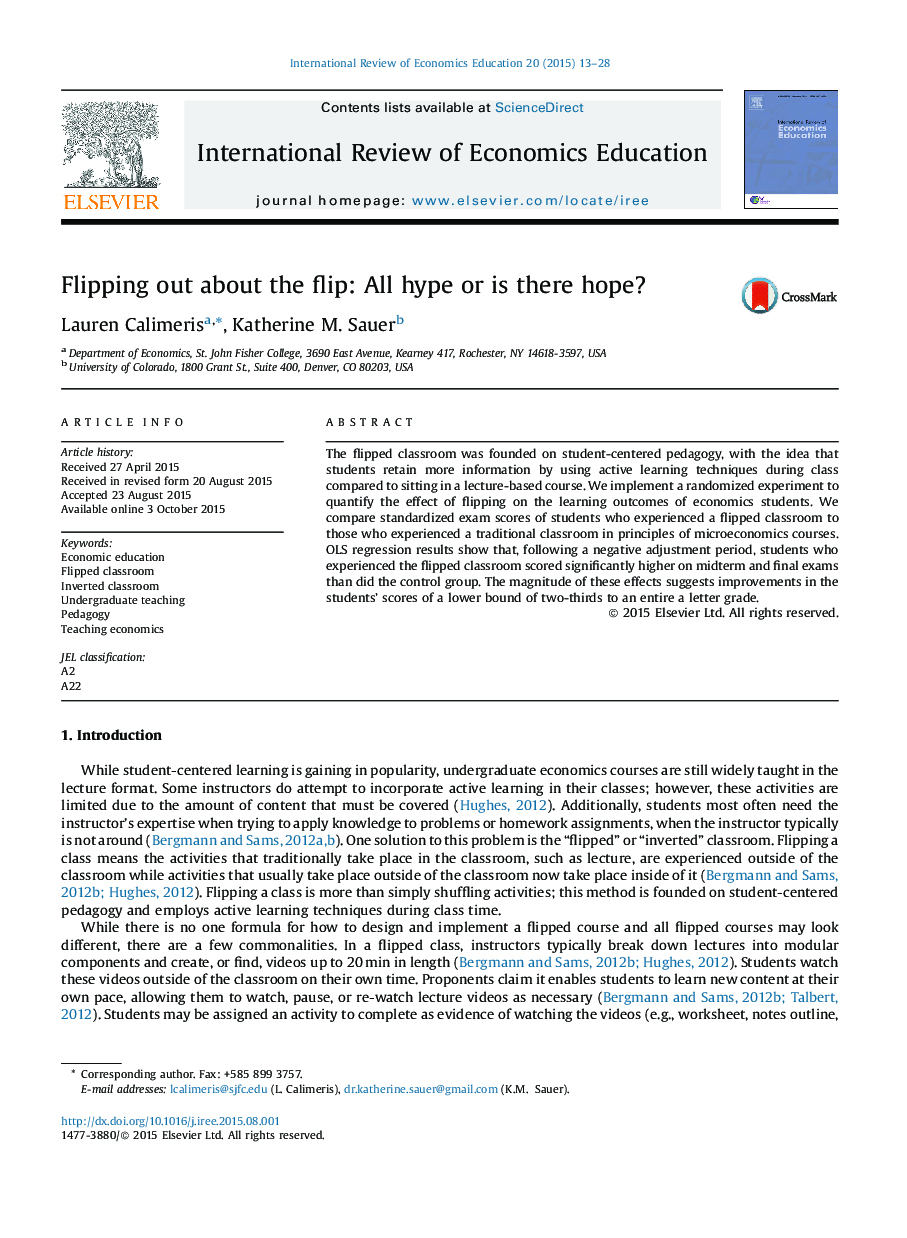| Article ID | Journal | Published Year | Pages | File Type |
|---|---|---|---|---|
| 357491 | International Review of Economics Education | 2015 | 16 Pages |
The flipped classroom was founded on student-centered pedagogy, with the idea that students retain more information by using active learning techniques during class compared to sitting in a lecture-based course. We implement a randomized experiment to quantify the effect of flipping on the learning outcomes of economics students. We compare standardized exam scores of students who experienced a flipped classroom to those who experienced a traditional classroom in principles of microeconomics courses. OLS regression results show that, following a negative adjustment period, students who experienced the flipped classroom scored significantly higher on midterm and final exams than did the control group. The magnitude of these effects suggests improvements in the students’ scores of a lower bound of two-thirds to an entire a letter grade.
